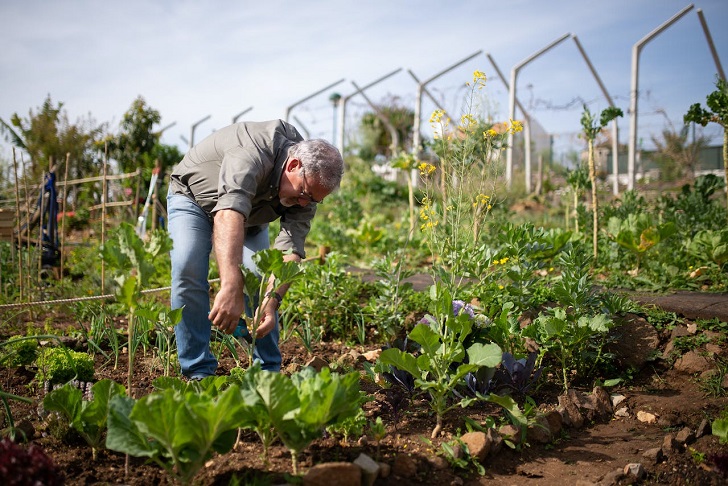When we think of happiness at work, we often conjure up images of employees in corporate offices or creative industries. However, a group of workers often overlooked in discussions about job satisfaction are farmers.
Surprisingly, farmers are among the happiest workers in the world. Despite their challenges, the rural lifestyle, close connection to nature, and the sense of purpose they derive from their work contribute to their overall contentment. This article will explore why farmers are among the happiest workers and the factors contributing to their job satisfaction.

Kampus Production/ Pexels | The farmer's connection to the land is a source of happiness that cannot be bought or replaced
A Strong Connection to Nature
One of the primary reasons why farmers are among the happiest workers is their strong connection to nature. Unlike many other professions that require working indoors in artificial environments, farmers spend their days outdoors, surrounded by the beauty and wonders of the natural world. This connection to nature has been shown to have numerous benefits for mental and emotional well-being.
Studies have consistently shown that spending time in nature reduces stress, anxiety, and depression. The rhythmic tasks of planting, tending, and harvesting crops give farmers a sense of peace and purpose often missing in other jobs. The changing seasons and the cycle of life on the farm create a sense of continuity and connection to the earth that is deeply fulfilling.
A Sense of Purpose
Farmers also experience a profound sense of purpose in their work. They are responsible for producing the food that sustains our communities and the world. This sense of contribution to society and the knowledge that their efforts directly impact people's lives give farmers a unique and deeply satisfying sense of purpose.
Farmers have a clear and essential role in a world where many people struggle to find meaning in their work. They are custodians of the land, nurturing it to produce the food that nourishes us all. This sense of purpose is a powerful motivator and contributes significantly to their happiness.

Pixabay/ Pexels | In the fields, amidst nature's beauty, farmers find solace and contentment
Self-Sufficiency and Independence
Farmers often enjoy self-sufficiency and independence that is rare in many other professions. They have control over their daily tasks and the decisions that impact their farm. This autonomy allows them to adapt to changing circumstances and make decisions that align with their values and goals.
The self-sufficiency and independence that come with farming can lead to a sense of pride and accomplishment. Farmers know that they are responsible for their success and that their hard work directly contributes to their livelihood. This level of control and responsibility can be empowering and fulfilling, contributing to their overall happiness.
Strong Community Bonds
Farming is often a communal endeavor. Farmers rely on their neighbors and fellow farmers for support, knowledge sharing, and camaraderie. This strong sense of community and social connection can significantly impact their happiness. Studies have shown that people with strong social networks are happier and experience better mental health.
In rural areas, where farming is prevalent, a close-knit community provides emotional support and a sense of belonging. Whether it's lending a hand during a busy season or sharing a meal with neighbors, these social interactions enrich the lives of farmers and contribute to their overall happiness.

Spencer Selover/ Pexels | The happiness of a farmer lies in the simplicity of a life well-lived on the land
Physical Activity and Health Benefits
Engaging in farming demands a robust physical presence as farmers immerse themselves in planting, harvesting, and livestock care. These daily tasks serve as a natural fitness regimen, keeping them in prime physical condition. The perks of physical activity extend beyond the body; they're also known to be potent defenders against mental health woes, curbing the risk of depression and anxiety.
Moreover, farmers revel in ready access to fresh, wholesome produce, a boon to their well-being. Embracing a diet teeming with these fruits and vegetables intertwines with a healthier lifestyle, slashing the likelihood of chronic illnesses and fostering overall wellness.






